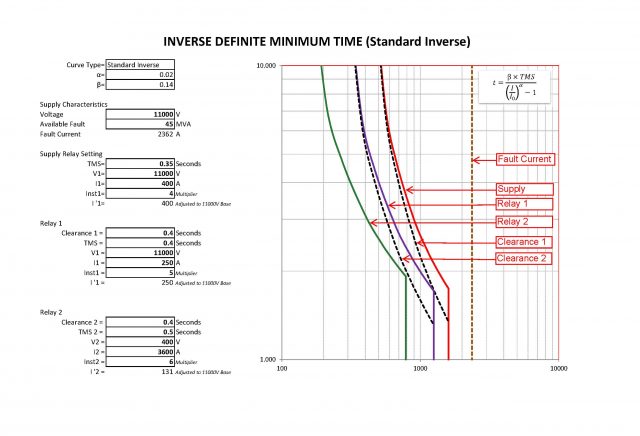The Philippine Electrical Code defines Selective Coordination as "Localization of an overcurrent condition to restrict outages to the circuit or equipment affected, accomplished by the choice of overcurrent protective devices and their ratings or settings".
Common Problems in Selective Coordination
- Breakers are not set correctly in the field
- Replacement breakers are not set correctly
- Ground fault equipment not set correctly
- 3-phase bolted faults are rare, there are more ground faults and arcing faults.
Selective Coordination in PEC 2017
Listed below are sections in PEC 2017 that require selective coordination
6.20.7.2 Selective Coordination.
Where more than one driving machine disconnecting means is supplied by a single feeder, the overcurrent protective devices in each disconnecting means shall be selectively coordinated with any other supply side overcurrent protective devices.
Selective coordination shall be selected by a licensed professional engineer or other qualified person engaged primarily in the design, installation, or maintenance of electrical systems. The selection shall be documented and made available to those authorized to design, install, inspect, maintain, and operate the system.
7.0.6.3 Selective Coordination.
Emergency system(s) overcurrent devices shall be selectively coordinated with all supply-side overcurrent protective devices.
Selective coordination shall be selected by a licensed professional engineer or other qualified persons engaged primarily in the design, installation, or maintenance of electrical systems. The selection shall be documented and made available to those authorized to design, install, inspect, maintain, and operate the system.
Exception: Selective coordination shall not be required between two overcurrent devices located in series if no loads are connected in parallel with the downstream device.
7.8.4.5 Selective Coordination.
Critical operations power system(s) overcurrent devices shall be selectively coordinated with all supply-side overcurrent protective devices.
Selective coordination shall be selected by a licensed professional engineer or other qualified persons engaged primarily in the design, installation, or maintenance of electrical systems. The selection shall be documented and made available to those authorized to design, install, inspect, maintain, and operate the system.
Exception: Selective coordination shall not be required between two overcurrent devices located in series if no loads are connected in parallel with the downstream device.
Overcurrent Protective Devices
The overcurrent protective devices may include the following:
- Molded Case Circuit Breakers
- Fused devices
- Insulated Case Circuit Breakers
- Power Circuit breakers
Methods to Achieve Selective Coordination
Some methods to achieve selective coordination are listed below. Note: this list is not comprehensive.
- Use larger frame breakers, electronic trip adjustments
- Consider the TCC curves from manufacturers that consider arc impedances
- Increase the impedance of the cables
- Divide larger loads into smaller loads
- Mixing of overcurrent protective devices
- Change the type of breaker
- Consider Zone Selective Interlocking (ZSI)
